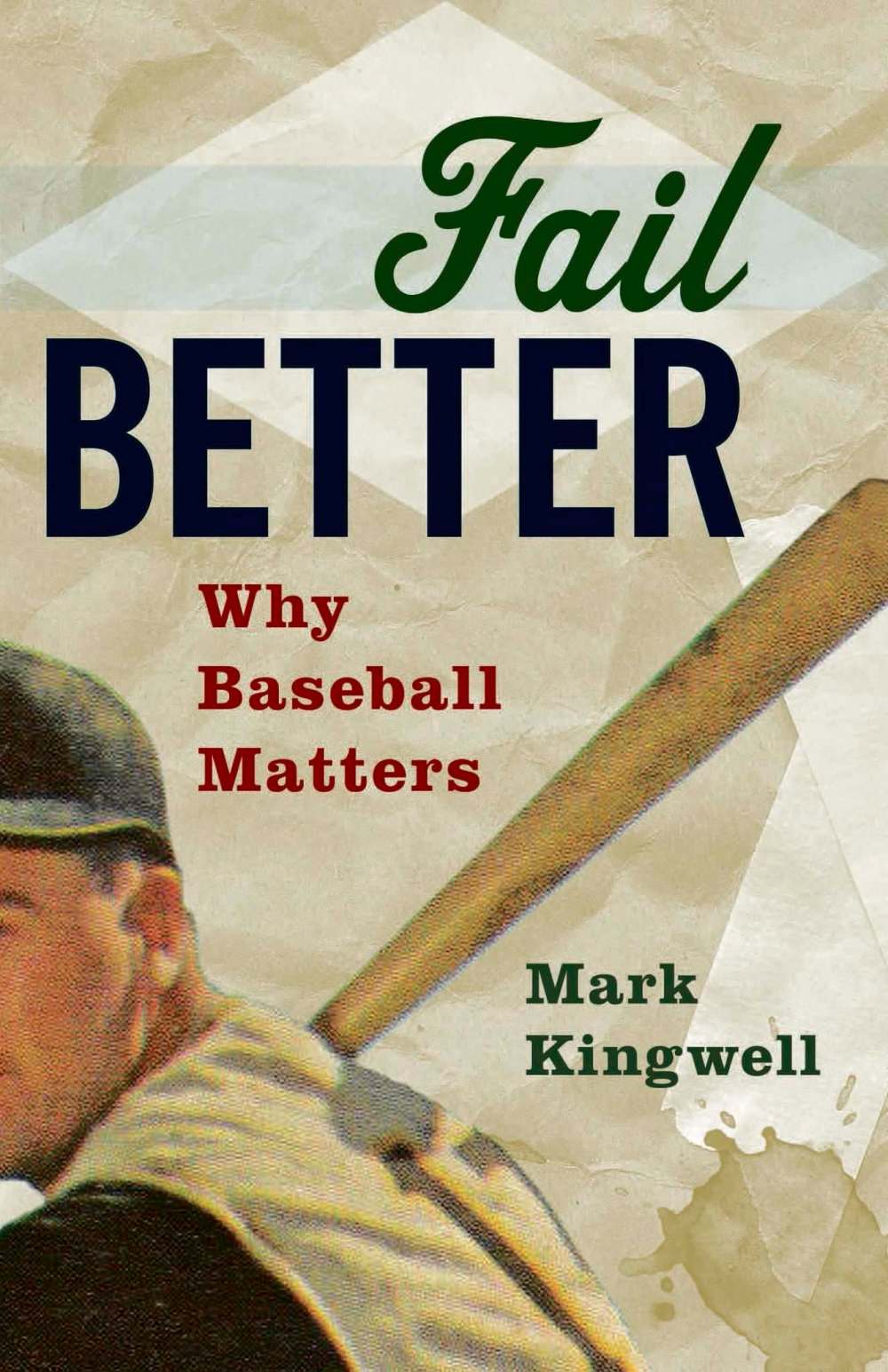Musings on baseball fail to knock it out of the park
Advertisement
Read this article for free:
or
Already have an account? Log in here »
To continue reading, please subscribe:
Monthly Digital Subscription
$0 for the first 4 weeks*
- Enjoy unlimited reading on winnipegfreepress.com
- Read the E-Edition, our digital replica newspaper
- Access News Break, our award-winning app
- Play interactive puzzles
*No charge for 4 weeks then price increases to the regular rate of $19.00 plus GST every four weeks. Offer available to new and qualified returning subscribers only. Cancel any time.
Monthly Digital Subscription
$4.75/week*
- Enjoy unlimited reading on winnipegfreepress.com
- Read the E-Edition, our digital replica newspaper
- Access News Break, our award-winning app
- Play interactive puzzles
*Billed as $19 plus GST every four weeks. Cancel any time.
To continue reading, please subscribe:
Add Free Press access to your Brandon Sun subscription for only an additional
$1 for the first 4 weeks*
*Your next subscription payment will increase by $1.00 and you will be charged $16.99 plus GST for four weeks. After four weeks, your payment will increase to $23.99 plus GST every four weeks.
Read unlimited articles for free today:
or
Already have an account? Log in here »
Hey there, time traveller!
This article was published 22/04/2017 (3140 days ago), so information in it may no longer be current.
Mark Kingwell is a “professional philosopher” — his term for his professorial work at the University of Toronto — and a rabid, lifelong baseball fan.
He combines these two passions in his 19th book Fail Better: Why Baseball Matters. In it he stitches together personal anecdotes and philosophical musings with baseball facts, stats and some classic stories, creating an entertaining and somewhat enlightening, if not entirely satisfying, examination of the sport — and life.
Kingwell admits early on that he was never very good at baseball; he had a good eye and a level swing, but he was mostly a “Punch-and-Judy” hitter — someone who could slap a single or double past the infield. And this is mainly a Punch-and-Judy book. Occasionally a chapter has warning-track power, but never quite hits one out of the park.

Part of the problem is that Fail Better is built on 36 short, discrete chapters with one-word titles: Love. Rules. Aiming. Sportspace. Parks. Character. Nation. Nostalgia. Justice. Beauty. And so on. Some chapters contain ideas and stories that are well-known to anyone who has followed baseball, even casually, for a while, but simply don’t go far enough.
In the chapter Slang, for instance, he defines 22 of the game’s terms. Some are more familiar, such as chin music, balk and seeing-eye single. Others, are less known: defensive indifference; five-run homer; and Linda Ronstadt (her song Blue Bayou translates into a pitcher’s term for a fastball strike that “blew by you”). The explanations that accompany the definitions are part of the fun of the book.
But the chapter doesn’t contain some of baseball’s most resonant terms such as beanball, blue-darter, worm-burner and even Punch-and-Judy hitter. So there’s a sense that the book is not as thorough or informed as it could be.
The philosophizing is what makes Fail Better different from other baseball books. But baseball aficionados might find the inclusion of the philosophers — Hegel, Wittgenstein and Lao Tzu, to single out the more recognizable names — a bit much.
Despite his lofty subtitle Why Baseball Matters, Kingwell does not systematically try to prove his thesis. Fail Better is not constructed like a logical syllogism — not even one as simple as: baseball is a human activity; all human activities matter; therefore, baseball matters.
Instead, the book works by accumulation and digression. It meanders through a series of ruminations prompted by baseball lore and Kingwell’s own personal reminiscences to draw out some serious philosophical distinctions that apply not only to baseball, but to everyday life.
His main theme is “the importance of failure and error to human self-understanding.” In this regard he believes that “there is no better tutor of human failure’s enduring significance than this strange, crooked game of base.” Baseball, after all, values failure by celebrating star players whose batting averages are somewhere near .300 — in other words, those who fail seven times out of 10. They fail better than their teammates.
Kingwell’s favourite player, Ichiro Suzuki, often embodies the ideal of “purposefulness without purpose.” He, more often than most players, provides “little moments of transcendence” when players and the game itself break the bonds of human possibility and the routine rules and norms of the game.
Baseball, Kingwell concludes, “achieves nothing. That is why it is so important.” At its best, it’s like high art.
When it hits, Fail Better is like baseball, providing enough little moments of transcendence to make it a worthwhile read.
Gene Walz’s favourite baseball player is Satchel Paige, whom he once saw pitch against the Rochester Red Wings.

